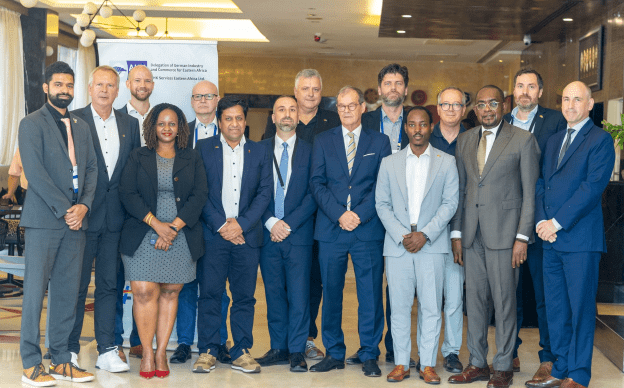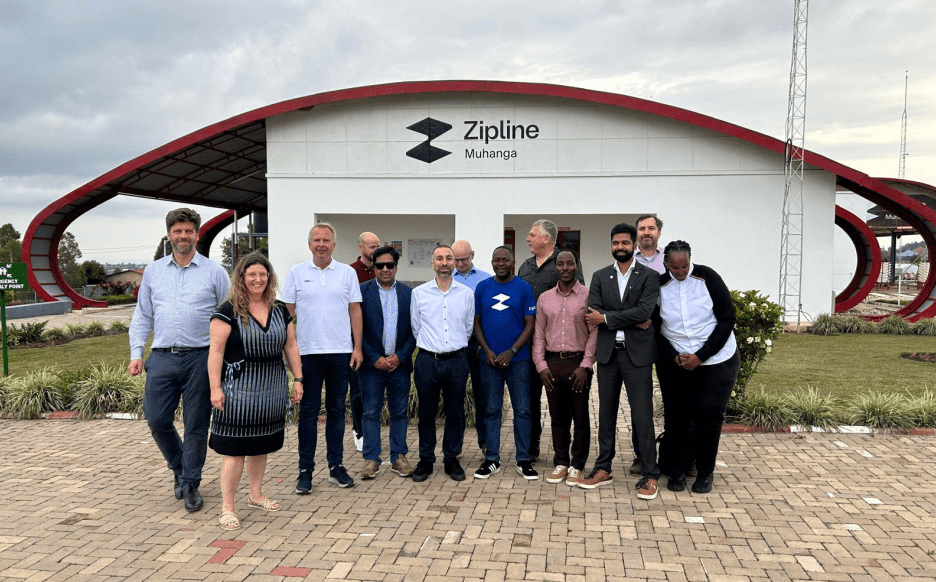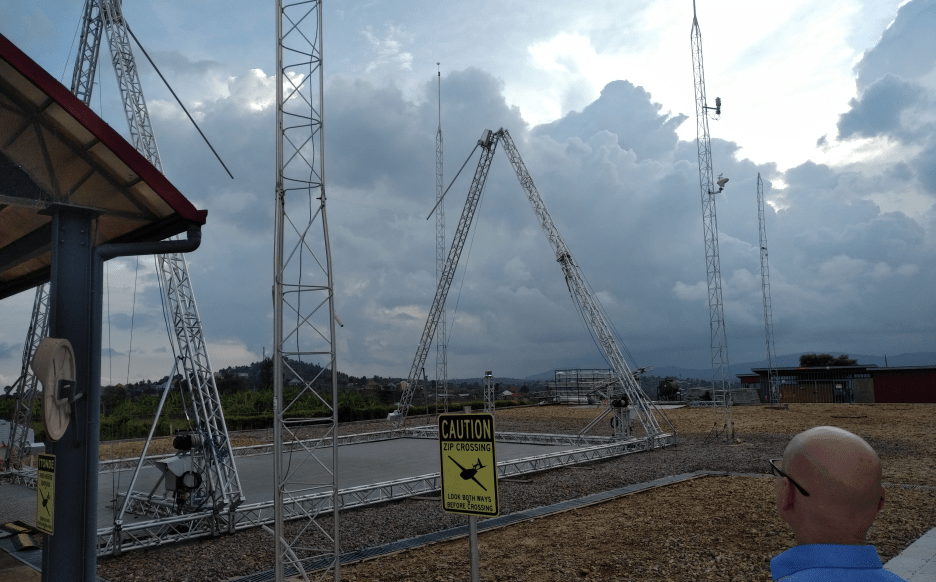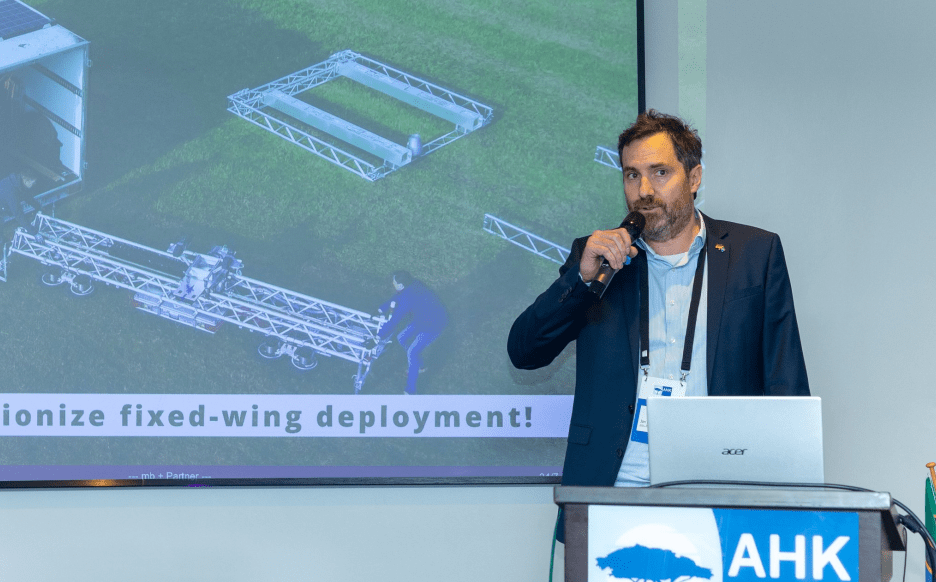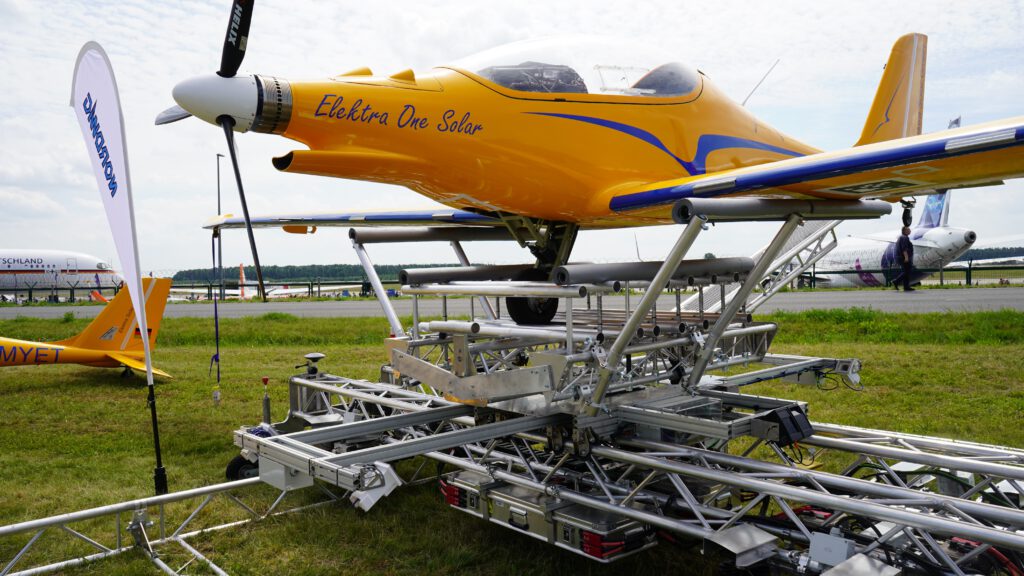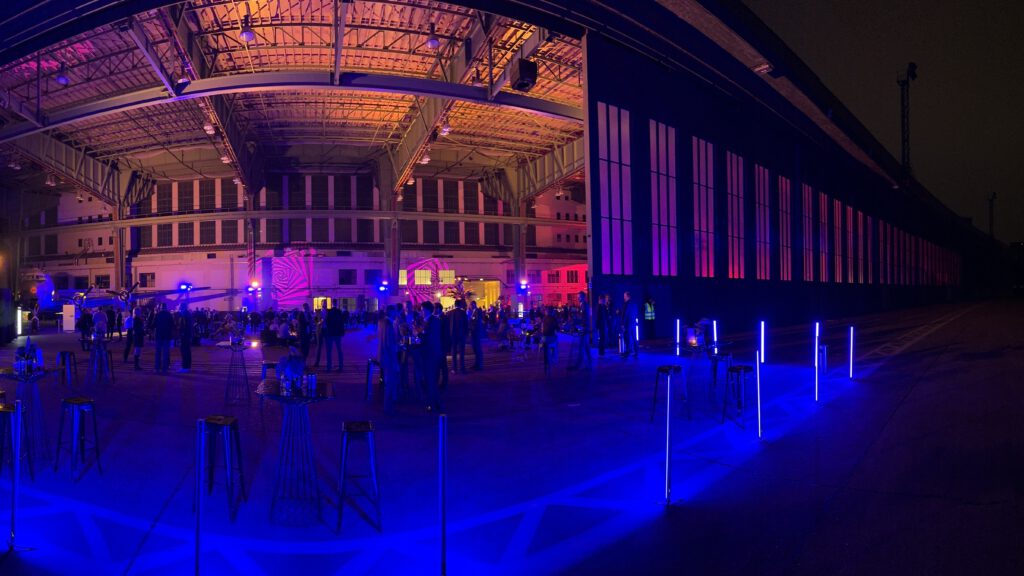What use have landing gears in flight? The answer to this question spawned the idea for our mobile runway system for UAV and light aircraft. In addition to the development of the mobile runway and complementary UAVs, we offer consulting services in aircraft systems technology and automation technology.
Benefits for your application
Mobile runway
Unlock automation
Increase performance
Low A/C requirements
Use cases
News
mb+Partner included in the selected OIC solutions with SILVA4BOS approach
The OpenInnovationChallenge (OIC) was organised by the FIRE-RES project (Innovative technologies & socio-ecological-economic solutions for fire resilient territories in Europe) which aims to "boost the socio-ecological transition of the European Union towards a fire-resilient continent by developing a stream of innovation actions".
After participating, we are now presented in the selected OIC solutions category with our SILVA4BOS approach!
For more information, see the FIRE-RES website.
Project Update: HYDRO-BUNNY 
In collaboration with our industry and research partners, we’re making progress on HYDRO-BUNNY — a project focused on infrastructure-independent hydrogen production and autonomous fueling for fixed-wing drones.
Building on our experience from Project H2finity, the latest test flight demonstrates, among other advancements, a significant improvement in the integration and operation of Intelligent Energy’s 1.5 kW air-cooled fuel cell system.
Key advancements
✅ Improved integration and a new firmware now enable nominal power generation from the fuel cell during flight
✅ A new payload setup remains stable at airspeeds over 30 m/s
✅ Flight controller improvements deliver reliable flight characteristics across a broad MTOW range of 23–32 kg
These results bring us closer to enabling long-range, sustainable drone operations powered by hydrogen.
🎥 Check out the video to see the HYDRO-BUNNY drone in action!
Feel free to hit up our project partners Institute of Aircraft Production Technology, TECCON Consulting and Engineering GmbH and ZAL Center of Applied Aeronautical Research.
#HydroBunny #Hydrogen #FuelCell #UAV #DroneTechnology #CleanAviation #Innovation #Sustainability #FlightTest
HYDRO-BUNNY is supported by IFB Hamburg.
🌍 Exploring Drone Opportunities in Tanzania & Rwanda: Strengthening Global Partnerships ✈️
Exciting days at the end of the year! We had the privilege of visiting Tanzania and Rwanda as part of German drone industry representatives, organized by the Delegation of German Industry and Commerce for Eastern Africa (AHK Eastern Africa) and the German Federal Ministry for Economic Affairs and Climate Action. This trip provided an invaluable opportunity to gain insights into countries, people & legislation and to connect with industry leaders, explore new drone technology applications, and strengthen our commitment to driving innovation.
A key highlight was our visit to Zipline, a leader in the use of small fixed-wing drones for logistics and healthcare delivery. As Zipline’s operations are already mature, their focus on using compact fixed-wing drones for remote deliveries offered valuable insights into scaling our own operations of larger fixed-wing drones. Their success in revolutionizing healthcare delivery in underserved areas was truly inspiring and aligns with our vision of using drone technology for impactful solutions, where even larger payloads, further distances and/or even higher automation rate is required.
In Tanzania, we were equally impressed by the government's focus on drones as a central part of their 5-year business development plan. This strategic initiative is set to unlock tremendous potential for drones in sectors like agriculture, logistics and healthcare.
Additionally, we had a great time with representatives from other Drone companies such as Aerodata AG, aeroDCS GmbH, CHARIS UAS, Dronesperhour, Germandrones GmbH, HHLA Sky GmbH and WINGCOPTER. The camaraderie and shared vision of the delegation were encouraging, and we look forward to future collaborations that will help propel the drone sector forward.
A big thank you to our hosts in Tanzania and Rwanda: Germany Trade & Invest, KfW, Deutsche Gesellschaft für Internationale Zusammenarbeit (GIZ) GmbH, German embassies in Rwanda & Tanzania, Tanzania Civil Aviation Authority (TCAA), Rwanda Civil Aviation Authority (RCAA), Tanzania Investment Centre, Ministry of Information Communication Technology and Innovation of Rwanda as well as to all the participants of the conferences and especially to those, who made this trip a success. We are excited to continue strengthening global partnerships and advancing the future of drone technology.
Exhibitor at ILA Berlin Airshow - what a week!
We started on Monday by loading the ElektRail system and accessories in our trailer, then traveled to Berlin to set up our exhibition stand on Tuesday - and were ready for ILA Berlin - Pioneering Aerospace. From Wednesday to Friday, our days were filled with visits from industry experts and potential clients.
We had the honor of receiving State Secretary Andreas Rieckhof from the Hamburg Ministry of Economics and Innovation (BWI) together with Andreas Richter and Uwe Kleber on Thursday. In the evening, we attended the North German ILA-Evening Reception, organised by WFB Wirtschaftsförderung Bremen GmbH. Next to historical planes, we were able to chat with industry experts, e.g. from Leichtwerk AG, about the future of aviation.
Friday, a new generation of aviation enthusiasts visited us thanks to the Hamburg Aviation Young Professionals network, Ralf Gust and Jette Koch.
On the weekend, the general public showed up for the sold-out ILA. So many people came by to ask about our system and UAVs - we were completely overwhelmed.
It was nice to show the results of the recently completed ElektRail project together with Elektra Solar GmbH and Nordwig Maschinenbau GmbH & Co.KG. We had a good time thanks to Konstantin Kondak, Uwe Hartmann, Calin Gologan and Karsten Hoops. The H2finity UAV was also on display - thank you for stopping by to talk about next steps, Teccon Consulting and Engineering GmbH and ZAL Center of Applied Aeronautical Research.
Last but not least, we were grateful for the opportunity to be included in the Chalet East of the Northern German states, Niedersachsen Aviation and bavAIRia e.V.


